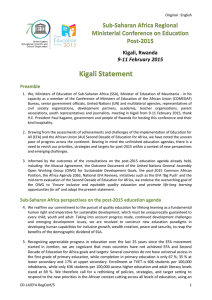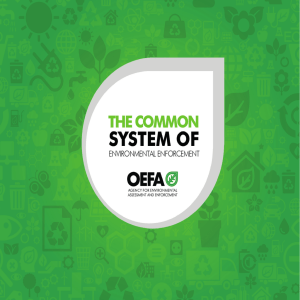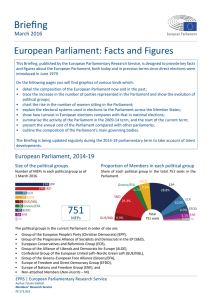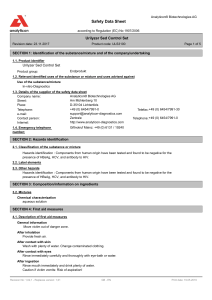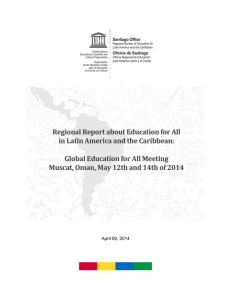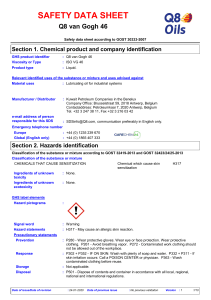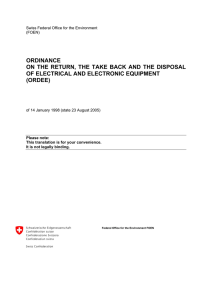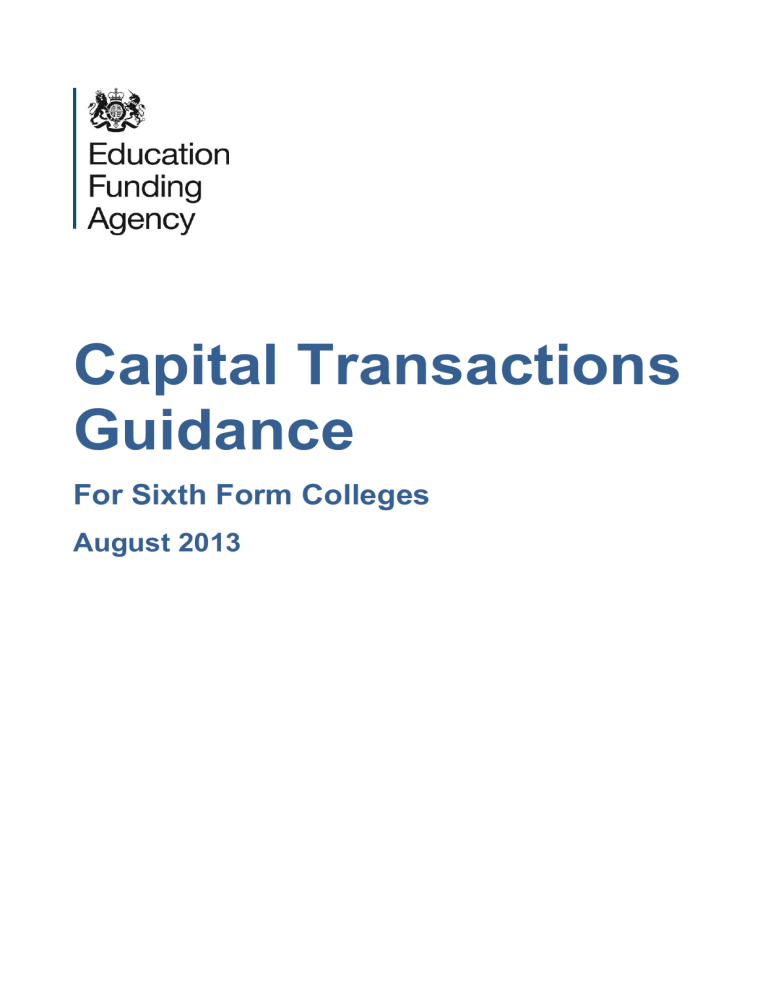
Capital Transactions Guidance For Sixth Form Colleges August 2013 Contents Summary 3 About this guidance 3 Review date 3 What legislation does this guidance refer to? 3 Who is this guidance for? 3 Key points 3 Consultation 3 Scope & Definitions 4 EFA and SFC Responsibilities 6 Significant Disposals 7 Significant Acquisitions 8 Further Information 9 Other departmental information you may be interested in 9 Associated resources (external links) 9 Report Template SFC1: Significant Disposals 10 Report Template SFC2: Significant Acquisitions 12 2 Summary About this guidance This guidance document sets out the statutory responsibilities of sixth-form colleges (SFCs) regarding capital transactions. The document also explains the relevant responsibilities of the Education Funding Agency (EFA). Review date This guidance is scheduled for review in 2015. What legislation does this guidance refer to? Further and Higher Education Act 1992 Charity Law This document should be read in conjunction with: The EFA Funding Agreement, the Joint Audit Code of Practice, Rigour and Responsiveness in Skils; relevant statutory requirements in relation to dissolution and the SFC’s Instrument and Articles of Government. Who is this guidance for? This guidance is for: Sixth-form colleges Key points If not using public funds to do so, SFCs do not need EFA consent to dispose of property, acquire property or borrow money. However, SFCs do need to report all significant capital transactions. Consultation The EFA has consulted with the Sixth Form Colleges Association, the Association of Colleges and the Association of School and College Leaders in producing this guidance. 3 Scope & Definitions The information below explains the reporting requirements for SFCs that are planning capital projects and transactions for which they do not require funding from the EFA or any other government department or agency, including disposals of assets that may or may not have been acquired in whole or in part with public funds. The guiding principle is that SFC governing bodies are trusted to make correct decisions about their property and their business, to take appropriate advice and to learn from good practice. Therefore, this guidance significantly reduces administrative burdens of SFCs whilst ensuring the EFA can maintain oversight of safeguarding assets acquired by public funds. Compared to previous guidance, the major changes are: SFCs do not require consent from the EFA for capital disposals or acquisitions, but are required to follow appropriate procedures, as explained below, to ensure assets funded by public funds are protected and to inform the EFA of significant capital transactions SFCs need to report to the EFA significant capital transactions at least one month before making any undertakings or commitments. This notice period will allow time for the EFA to advise on whether the EFA, Department for Education (DfE) or Secretary State may have any interest (e.g. intended use of sale receipts). Normally the EFA will reply within one month SFCs intending to borrow funds no longer need consent from local authorities or from the EFA SFCs do not have to submit the following when reporting significant capital transactions: o o o o evidence of the procurement route detailed project plans funding and finance plans and investment appraisals This guidance applies to significant capital transactions for which the SFC is not applying for funding as it has secured funding from its own financial reserves, from borrowings, from non-public sources or from a disposal. Responsibilities and processes for SFCs that are under Trust arrangements may vary. In particular Roman Catholic SFCs have different responsibilities and processes as a consequence of their Trust relationship with the Diocese. There are also SFCs that have other Trust arrangements. In all these cases it is incumbent on the SFC to ensure it contacts the relevant authorities to ensure they comply with any conditions set out in their particular Trust deed, or otherwise imposed. Significant capital transactions are defined as: o Disposals having a total value of the lesser of £5m or 25% of annual turnover, and may involve a single transaction or the cumulative sum of several transactions within any 24-month period and/or 4 o Any capital projects, including acquisitions, that the SFC or EFA judges to be novel or contentious. If the SFC and EFA disagree, the EFA view will take precedence. These definitions cannot cover all situations. SFCs must use their best judgement, and should seek the advice of the EFA if in any doubt. Other important definitions used here are: an “undertaking” comprises any verbal or written intention declared to a third party “novel” means a transaction of which the SFC has little or no experience or is outside the range of its normal business activity “contentious” means a transaction that is likely to attract public or media attention (e.g. large land disposal or change of use) “annual turnover” is the sum as reported in the most recent audited accounts 5 EFA and SFC Responsibilities The DfE is required to monitor SFCs’ compliance with the terms and conditions attached to the EFA’s funds, including how the SFC manages disposals and acquisitions of assets funded in whole or in part by public funds. The EFA monitors SFCs’ compliance on behalf of the DfE. SFCs are classified as exempt charities, and the Secretary of State for Education is the Principal Regulator under Charity Law. The EFA is the agency charged with monitoring and assisting in the regulation of SFCs’ Charity Law compliance. The EFA requires SFCs to report, at least one month before decisions, using the template forms at the end of this document, all significant capital transactions being considered by their governing bodies. The removal of the requirement for consent is on the understanding that, under its instrument and articles of government, the SFC governing body is responsible for fulfilling its responsibilities as a Charity and for complying with relevant legislation, including Schedule 4 of the FHE Act 1992. Where a SFC is proposing to dispose of land and buildings that have been acquired by public funds (i.e. direct capital grant from the EFA, or any other state department or agency distributing capital grants) and does not plan to reinvest those proceeds into its estate, the EFA will require the SFC to either surrender some or all of the proceeds to the DfE, or require the SFC to retain the sale proceeds in a restricted reserve for future capital investment in the SFC’s estate. The EFA will determine the sum to be surrendered by calculating the proportion of the original cost paid by public funds to the net receipt, or another appropriate method. Where a SFC is subject to additional requirements pursuant to the Quality Assurance clauses of the Funding Agreement, additional reporting and/or constraints on capital transactions may apply. This may include, but is not limited to, policy set out in Rigour and Responsiveness in Skills. 6 Significant Disposals SFCs need to report a disposal, or series of disposals, of a value of more than (the lesser of) £5m or 25% of annual turnover within a 24-month period, and that comprise: disposal of freehold propery surrender or assignment of a lease leasing of premises to another party entering into an option agreement to dispose of property option agreements where the total value of the property exceeds the threshold defined above and/or a novel or contentious undertaking In cases of leasehold transactions, the capital cost of the lease is calculated by capitalising the annual rent (exclusive of VAT or service charges) received by the SFC using a multiplier of 10. If this is below the turnover threshold (as described above) then EFA consent is not required. The SFC will not need a report on a surrendering, entering or assigning a lease if: o The length of the lease is less than 10 years; or o There is a break clause which limits the total rental liability to less than the threshold defined above. 2. An SFC should use Form SFC1 to report Significant Disposals. 7 Significant Acquisitions SFCs need to report a significant transaction, or series of transactions, the value of which is more than (the lesser of) £5m or 25% of annual turnover within a 24-month period and that comprise: construction of a new building or extension to existing buildings significant refurbishment or re-modeling of existing buildings acquisition of property (e.g. land and buildings) entering into an option agreement to acquire a property and/or a novel or contentious undertaking, as defined above An SFC should use Form SFC2 to report Significant Acquisitions. 8 Further Information SFCs should contact the EFA 16-19 Capital Team as early as possible to discuss whether they need to report certain transactions, what projects constitute being novel or contentious or about any particular aspect of a project by emailing: [email protected] Other departmental information you may be interested in Department for Education: Building Design information Department for Education: Space modelling and utilisation Department for Education: Rigour and Responsiveness in Skills Department for Education: SFC Instrument and Articles of Government Associated resources (external links) Department for Environment, Food and Rural Affairs: procurement practice Health and Safety Executive (education) HM Treasury: Green Book - Appraisal and Evaluation in Central Government. Official Journal of the European Union (OJEU) Sixth Form Colleges Association Skills Funding Agency: Cost modelling for colleges 9 Report Template SFC1: Significant Disposals Name of Sixth-form College Address Postcode College Lead Contact Role in College Telephone Number Email 1. State the type of disposal / property transaction 2. Describe the project 3. Explain the rationale for the project. (No word limit; the box will expand.) 4. Confirm you have obtained a valuation report 5. Confirm whether the disposal involves land or buildings that have been paid either wholly or in part by the Secretary of State or other public funding body and if so confirm the value of that funding. 10 6. State what the college intends to do with any receipts from the sale of the land or buildings. If some or all of the receipts are not to be reinvested in the college estate, the college will need to return the appropriate sum to the EFA (see question 7). 7. If the land / buildings to be sold were acquired in whole or in part using public funds (i.e. funds from a government department or agency), and if the all of the disposal receipt will not be reinvested in the college estate, state the sum that will be surrendered to the Exchequer or kept in a reserve fund. This sum is calculated by applying the proportion of the original cost funded by the public to the estimated net disposal receipt. Declaration I certify that the information provided above is complete and correct. Signature (Principal) Name (print) ________________________________________ ________________________________________ Date:________________________________________ Email the completed, signed and scanned document to: [email protected] 11 Report Template SFC2: Significant Acquisitions Name of Sixth-form College Address Postcode College Lead Contact Role in College Telephone Number Email 1. State the type of property development / transaction 2. Describe the project including the details on the proposed works. 3. State the total project cost and confirm the funding sources 4. Explain the reason for undertaking the project. 5. State what impact the project will have on the condition of the college’s buildings 12 6. Confirm you have obtained a valuation report Declaration I certify that the information provided above is complete and correct. Signature (Principal) Name (print) ________________________________________ ________________________________________ Date:________________________________________ Email the completed, signed and scanned document to: [email protected] © Crown copyright 2013 You may re-use this information (excluding logos) free of charge in any format or medium, under the terms of the Open Government Licence. To view this licence, visit www.nationalarchives.gov.uk/doc/open-government-licence or email: [email protected]. Where we have identified any third party copyright information you will need to obtain permission from the copyright holders concerned. Any enquiries regarding this publication should be sent to us at: www.education.gov.uk/contactus. This document is available online on the DfE website. 13
